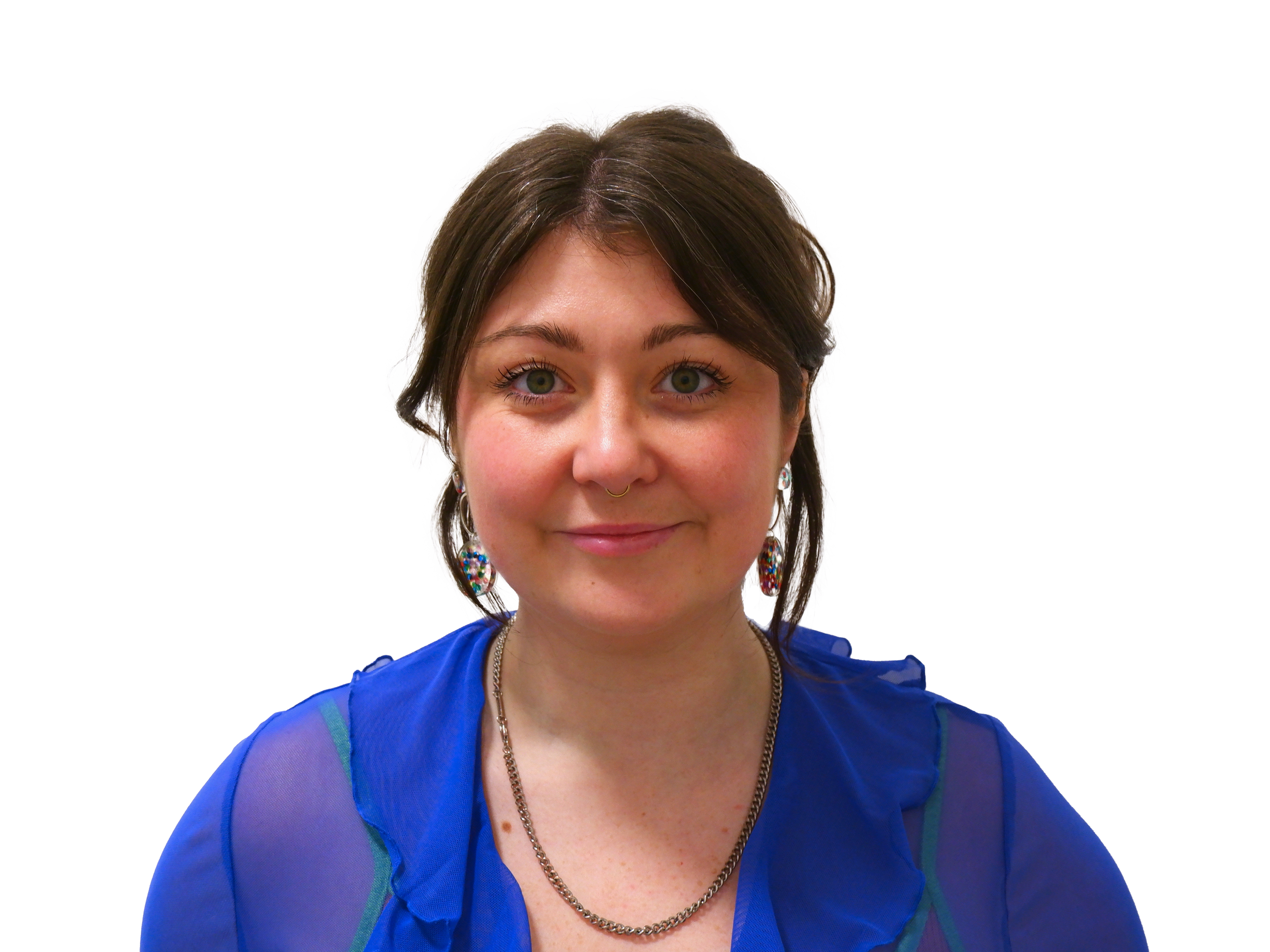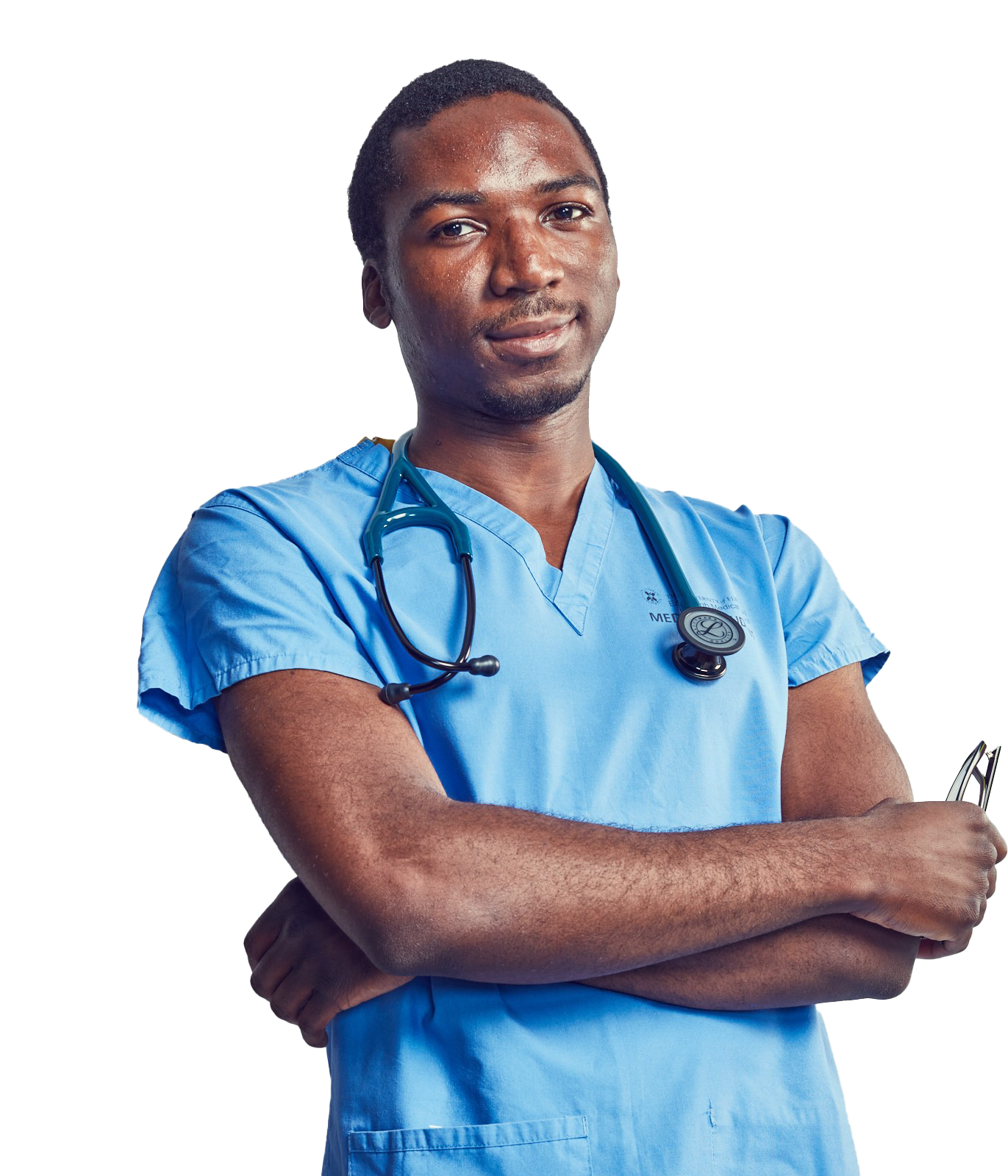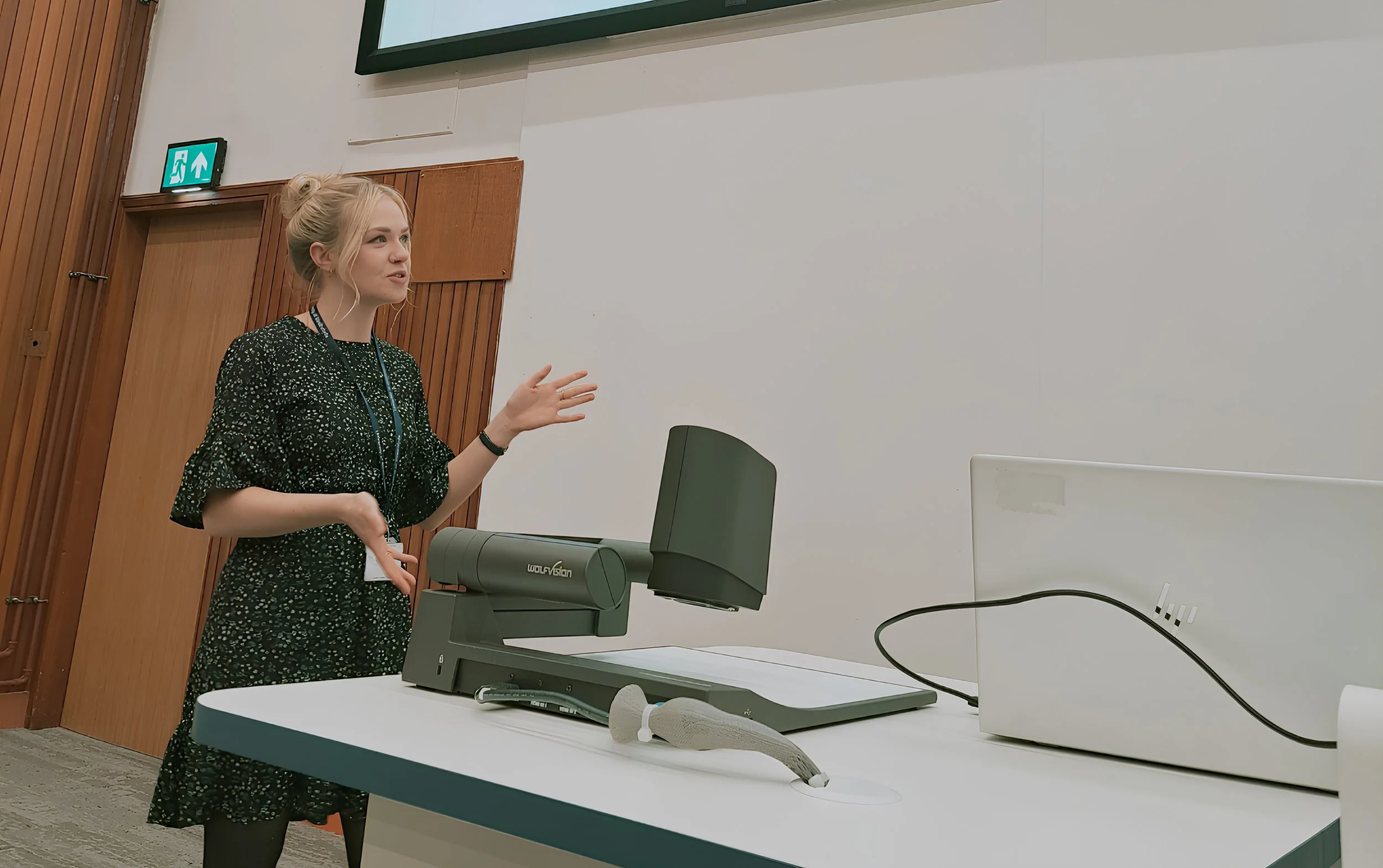LESSONS
Join things up
Scotland’s hugely ambitious goal to equalise access to university by 2030 requires a whole system approach, at every level of education.
Most of our students and graduates have very recently navigated the “system” from the inside and many have experienced inequality of opportunity from a young age. They have strong opinions on the value of earlier, stronger and broader connections between schools, colleges and universities to help people to overcome these obstacles.
This amplifies Universities Scotland’s call on policy-makers to take a holistic approach to the access goals.
more will be achieved by working together
Big strides have been taken towards the 2030 targets.
Scotland’s universities have introduced the most progressive admissions policies in the UK, with minimum entry requirements and contextual admissions in place. Universities guarantee offers to applicants with care experience who meet minimum entry requirements. They also reach out to schools to engage learners at a young age.
Universities are committed to doing what they can to level the playing field.
It is making a difference. Together, universities were on target at the mid-point in 2021. But the rate of progress is slowing.
The challenge of widening access to university must be contextualised by the need to close the attainment gap in schools. This was recognised in the original 2016 Blueprint for Fairness. Its also recognised by Elson, Kirsten and Shahzad who, having not long since been in school themselves, see the need for better quality and opportunities and across all schools, regardless of postcode or area.
Connecting policy and progress in schools and colleges to this agenda will be essential in securing a lasting basis for equal access at university.
Shannon and Karen both view early connections between school and university - into the early years - as important. Sarah Louise and Kirsten speak definitively about the role that college played in their journey into university.
Meet them
University of Edinburgh
Edinburgh Napier University
Glasgow School of Art
University of Aberdeen
Queen Margaret University Edinburgh
University of Stirling
University of Glasgow
Robert Gordon University
University of Aberdeen
Glasgow School of Art
University of Strathclyde
Kirsten Koss
Politics and History
University of Aberdeen
Kirsten is the first in her family to attend university and started by going to college first.
— What was your motivation to go to university?
Having been out of education for four years, I decided to start at college and enrolled in HND Social Sciences at North East Scotland College, where I was able to study things I knew I liked, like Politics, but I could try new subjects like History and Sociology. Although I wanted to go to university, I had never really believed that it was something I was capable of, but studying at college inspired me. By the time I applied for university in January 2022, I genuinely believed that I was worthy of a place, and I was accepted by all five universities that I had applied to.
— What was the most helpful thing the university did?
Through the disability service, the university paid for me to have a two-hour appointment with an educational psychologist, who confirmed an ADHD diagnosis. Although it’s not a medical diagnosis, it has given me access to specialist software and support which have made such a difference to my mindset. I am a lot kinder to myself now that I know why I might struggle more than others despite being academically capable.
— In your experience, what more needs to be done to reach Scotland’s 2030 target to equalise access to university?
I think a key flaw in the current model is the financial discrepancies between the wealthiest and worst-off students. Although I’ve been fortunate enough to have part-time work that I really enjoy, juggling the hours I need to work alongside my studies is challenging. I’ve heard of students dropping out because they can’t afford to live, and NUS Scotland has published reports on the impact of student poverty on students from the most disadvantaged backgrounds.
I also think that widening access starts at the very beginning. It’s important that children across Scotland have access to well-resourced schools with diverse sets of opportunities, no matter where they live in Scotland.
"The university paid for an appointment with an educational psychologist who confirmed an ADHD diagnosis. Access to specialist software and support has made such a difference.”
SHANNON jackson
Medicine (MBChB)
University of Glasgow
Shannon attended a low-participation school and entered university via REACH
— In your experience, what more needs to be done to reach Scotland’s 2030 target to equalise access to university?
Firstly, maintaining access programmes as in my experience they have been largely successful. Providing more support throughout high school, even in the early years might help pupils understand how a path through university could benefit them and that it is very much for people like them.
On a personal note, there are still opportunities that I have to turn down as I couldn’t possibly finance them which can be disheartening. Better financial support to encourage further academic endeavours would be of a huge benefit to students such as myself who would be able to participate in these activities were we from a more affluent background.
There is still a disparity between backgrounds at university, and this becomes more noticeable in areas such as this as these opportunities will be used by employers to select better candidates for jobs, creating another disadvantage down the line.
"When individuals can see people from their own backgrounds doing something they dream of, it shows them that it is entirely possible.”
— What was your motivation to go to university?
For me, I had my heart set on medicine from a very early age and I had never wanted something so desperately in my life. I think one of the biggest motivators was that I didn’t know anyone who had been to university and that I had always thought that medicine would benefit from reflecting the communities that we serve.
— What was the most supportive thing the university did for you?
By far the most supportive thing the university has ever done for me has been providing me with the opportunity to take part in the Reach programme (S4 to S6). Having this programme present in my high school created a support system for students like me who were not as familiar with further education as perhaps students from more affluent areas were.
The Reach programme would hold sessions for support during the application process and would provide sessions where professionals in your chosen subject area would give an insight into what their career is like and how to get there. It allowed me to meet many people with similar backgrounds and experiences to myself which meant that we all had a good support network while going through this process. It also meant that I felt more secure in that I wouldn’t be alone in coming from a more disadvantaged background.
Karen rennie
Nurse and lecturer
Queen Margaret University Edinburgh
Karen Rennie joined university from a low participation school programme, called LEAPs.
— What was your motivation to go to university?
I had a passion for helping and supporting people, and a real interest in health and social care. I knew that I wanted to be in a role where I could care for people and support others to live a life that was meaningful to them. I then decided to make sure if I was going to university, I would try and get the best degree possible, which is why I chose Queen Margaret University do to the BSc (Hons) in nursing.
I knew from day one of my course that I had made the right decision. Not only did I love the practical side of nursing, I was also found myself developing a passion for nurse education, theory and research.
— What was the most supportive thing the university did for you?
The lecturing team supported me to strive for every opportunity to excel in my career, supporting me to attend conferences, write articles for publication and encouraged me to believe in myself. My career developed quickly because the lecturing team took time to support my individual needs and career ambitions. I will be eternally grateful for the personalised support that Queen Margaret University offered me.
“My career developed quickly because the lecturing team took time to support my individual needs and career ambitions…”
“More career and life skills input in schools is needed… no matter what background they come from.”
— In your experience, what more needs to be done to reach Scotland’s 2030 target to equalise access to university?
More career and life skills input in schools. I was fortunate to have a fantastic mentor in my life (my Dad!) who put a lot of time and effort into my career ambitions and decisions. I was always encouraged to pick the right course (both life and academia) for me and only me! If more time was spent helping people to discover what their passion is in life then, working hard to get into university and making it a success for any individual, no matter what background they come from, would be half the battle.
More about Karen’s career
After completing her BSc (Hons) Nursing degree in 2017, Karen went straight on to study a PhD with Queen Margaret University too. While studying, she has won various awards including being a finalist in the Student Nursing Times Awards in 2019, in the Post-Registration: Learner of the Year category.
Karen strongly believes it is crucial to bridge the gap between clinical practice and academia in nursing and healthcare, and so she works hard to create links and connections between nursing research, education, scholarship and practice.
“I knew from day one of my course that I had made the right decision.”
Sarah Louise McQuarrie
Jewellery designer
Glasgow School of Art
— In ten years’ time what part of your university experience do you think will be most useful to you?
Having peer support and feedback during my studies was a core part of the experience, exposing me to so many people from different backgrounds and cultures, whilst sharing knowledge and skills. The ability to connect and network confidently with others in the industry is a skill that will always be essential to succeeding!
— What would you think your younger self would think about where you are now?
I don’t think my younger self would believe that I had achieved a degree and was now living and working in London! I was very fixated on my “failures” when I was younger – as I’ve gotten older I can see that if they had not happened, I wouldn’t have found myself on the path I am now. If you have a goal, it doesn’t matter how you reach it, whether that’s slower or faster than anyone else, your journey’s are not comparable.
Sarah Louise struggled with her first transition to university aged 17.
— In your experience, what more needs to be done to reach Scotland’s 2030 target to equalise access to university?
I think that colleges are key to people transitioning into university. My own experience of attempting to go straight into university from school was difficult – my school did not provide advanced level qualifications in a lot of subjects and there was little support with the transition into higher education. I felt incredibly ill-equipped to deal with the drastic change from school to university and the increased level of focus and responsibility, which severely impacted my mental health. I think that there needs to be more crossover between colleges and schools and that they are presented as a valuable path towards university – particularly to those from disadvantaged backgrounds. I don’t think I would have returned to university and obtained a degree if I hadn’t gone through college. Additional funding would be particularly advantageous to those studying at university – I oftentimes struggled to manage my coursework alongside working part-time to pay for my rent and bills but also the costs associated with my course.
"University gave me the support and confidence to develop an artistic identity, learn how to develop my ideas and confidently speak about myself and my practice.”
“I think one of the biggest motivators was that I didn’t know anyone who had been to university and that I had always thought that medicine would benefit from reflecting the communities that we serve.”
Shannon Jackson
Fiona Speirs
Widening Access officer
Edinburgh Napier University
— What was your motivation to go to university?
I decided to go to College during the pandemic as my children had left school, I was looking for a career change and I had more time to study. Once at college I heard about direct entry to University and thought why not? I completed my HND then moved on to my degree.
— What advice would you give your younger self?
I would tell my younger self to choose subjects that interested me rather than feel pressurised into taking the “right” subjects or those that my friends were taking. I have found that if you love something and are genuinely interested in it you will work harder and be naturally more successful.
— In your experience, what more needs to be done to reach Scotland’s 2030 target to equalise access to university?
Ensure financial help goes to the people who need it. Better marketing for part time courses so people can keep working but have the opportunity to study. Target communities with low progression who could attend college first. University is not just for young people and the value of upskilling later in a career should be recognised.
A mature student, Fiona began her studies at college and articulated directly into third year of her degree.
"University gave me more confidence in my ability to learn and to also achieve.”
Elson Musenga
Doctor
University of Edinburgh
Elson went to university with the support of an access initiative focused on low participation schools.
— Why did you want to go to university?
My key motivations were career aspirations and desire for personal growth. Growing up in Zambia, education was viewed culturally as a gateway to a better life. Thus, from a very young age my parents always emphasized its importance.
— What was the most helpful thing the university did for you?
In the fourth year of high school, I was introduced to Pathways to the Professions by Lesley Stokes. This was a widening access programme based in Edinburgh, focused on helping students from underprivileged backgrounds/schools with historically low rates of high education attainment.
Through pathways I was able to learn more about a career in medicine via workshops and work experience programmes. They also helped me build and craft a successful university application and in the summer of 2014 I began life as an Edinburgh university medical student.
“Through Pathways to the Professions, I was able to learn more about a career in medicine via workshops and work experience programmes.”
“widening access at university level is great but this needs to be backed up with good quality education and opportunity at a primary and secondary school level.”
— In your experience, what more needs to be done to reach Scotland’s 2030 target to equalise access to university?
In my view, widening access at university level is great but this needs to be backed up with widening access to good quality education and opportunity at a primary and secondary school level.
Students who are from socio-economically deprived areas are not exposed to the same opportunities as other students. Many of them do not have parents or close relatives or other people in their lives who attended high education so lack role models who can guide and advise them.
The other aspect of this is that it is now increasingly difficult to conceive of high education in the context of a cost-of-living crisis. Economically disadvantaged students going to need more financial support with regards to accommodation, transport or university fees.
“Growing up in Zambia, education was viewed as a gateway to a better life.”
Toni rodgers
Careers and Work Based Learning Coordinator
University of Stirling
Toni is from a care-experienced background.
— What was the most helpful thing the university did for you?
When I was in the middle of my degree, due to unfortunate reasons I found myself in the middle of a court case and mentally in a horrible place. I felt like I couldn’t go on with my studies and I felt like giving up. The university was amazing in helping me stay afloat while I got the support I needed, and I had to retake a year, but I received excellent support and as able to graduate and succeed in my degree.
— In ten years’ time what part of your university experience do you think will be most useful?
The Careers Service, definitely. They helped me so much when I needed the support. In my final year, I was offered to help them with a research project about helping those with experience of care in university, and I took the opportunity. Because of that I have discovered my passion for helping others in higher education.
— In your experience, what more needs to be done to reach Scotland’s 2030 target to equalise access to university?
There needs to be resources that detail the paths that you can take, and whether you choose university right out of high school, or a bit later. You should be aware of all the paths available, and all the resources you can utilise to make your university experience less stressful. There is a lot of pressure to just ‘know’ things, and when you grow up in circumstances that vary from the typical path, you might need that extra bit of help.
"whether you choose university right out of high school, or a bit later... You should be aware of all the paths available...”
Megan Banks
Widening access support officer
University of Strathclyde
megan took part in strathclyde’s accelerate programme in 5th year before successfully gaining entry to ba primary education.
— Why did you want to go to university?
My goal whilst at school was to become a primary school teacher, however, I was very apprehensive about the thought of university and felt it may be out of reach for me. Nobody in my family or wider community was educated beyond high school so I didn’t have anyone to turn to regarding advice. I originally planned to study Childhood Studies at college but my guidance teacher encouraged me to research university.
— What was the most helpful thing the university did for you?
University provided me with the chance to take part in the Accelerate Education Challenge in S6 as I met their widening access criteria. This programme helped alleviate my worries regarding university and allowed me to learn firsthand what university was like day to day. By completing the Accelerate Challenge, I was given a better chance at achieving a place at University of Strathclyde and eventually being offered a place through contextualised admission. Taking part in the Accelerate Challenge led me to become a student mentor on the programme whilst I was studying primary education, a pivotal moment that eventually led me to work in this industry and give back to the university that offered me such a valuable experience.
“Nobody in my family or wider community was educated beyond high school so I didn’t have anyone to turn to regarding advice.”
— In your experience, what more needs to be done to reach Scotland’s 2030 target to equalise access to university?
In my current role, I work with the Widening Access team to complete outreach work with local primary and secondary schools and our evaluations are showing that this project is making significant impact on raising aspirations and breaking down myths and barriers to university. Universities should continue to invest in working with schools to break down these barriers from a young age are and develop parental and community awareness and engagement around access to university and alternative positive pathways.
“Universities should continue to invest in working with schools to break down these barriers from a young age.”
“By completing the Accelerate Challenge, I was given a better chance at achieving a place at University of Strathclyde.”
Shahzad Ahmed
Medicine
University of Aberdeen
Shahzad took part in the University’s Gateway2Medicine programme.
— Why did you want to go to university?
I always knew that I wanted to study Medicine since I was very young. My younger brother, who has special needs, has been my main inspiration to pursue this field. I used to accompany him to his hospital appointments and witnessing the care he received there motivated me to do the same for others. However, when I moved to the UK at the age of 10, I faced difficulties with my studies as English was not my first language. Even though I did not initially get the grades required to apply for Medicine, I never gave up on my dream. Despite people doubting my abilities, I was fortunate enough to be accepted for the Gateway to Medicine program, which I completed before starting the Medicine course. I am currently in my 4th year of Medicine, and I am grateful for the Gateway to Medicine program for helping me achieve my dream.
— In your experience, what more needs to be done to reach Scotland’s 2030 target to equalise access to university?
I went to Bellahouston Academy in Glasgow, which was a good school in my area. However, it wasn't comparable to private schools like Hutchesons Grammar that some of my friends attended.
I believe universities should consider the area and school that a student went to. I also think there should be more gateway courses, like Gateway to Medicine, that people can take to get into the course they want to do. These courses should increase their capacity and lower their requirements so that more people can apply and be accepted.
"I am grateful for the Gateway to Medicine program for helping me achieve my dream.”
Samantha Dick
Artist and phd candidate
Glasgow School of Art
From an SIMD20 neighbourhood, Samantha is the first person in their family to attend university.
Donna Morrison
Midwifery
Robert Gordon University
Studying at college enabled Donna to build her self-confidence, and to gain the qualifications she needed to join RGU’s Midwifery programme.




































